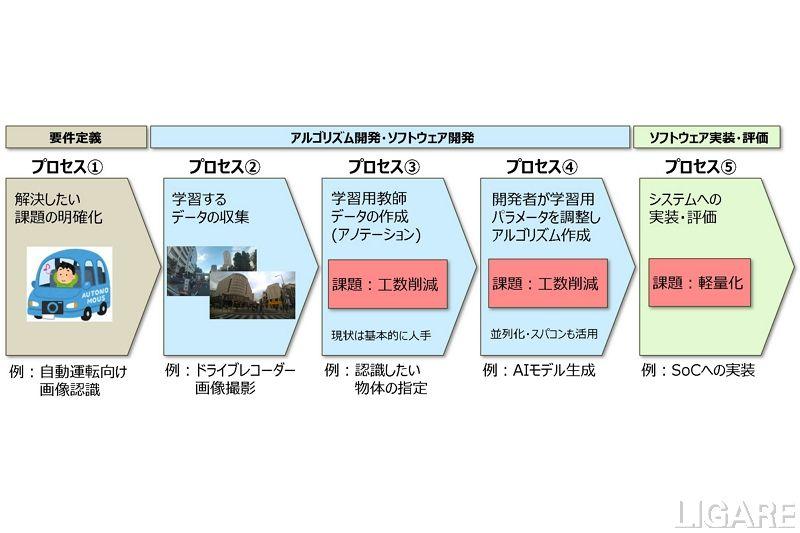DENSO TEN develops AI technology for real-time recognition of photographed objects such as vehicles
Efficient data collection incorporating Edge AI
DENSO TEN Co., Ltd. (hereafter, DENSO TEN) is an edge AI (hereafter, DENSO TEN) that recognizes objects captured by built-in devices such as drive recorders (hereafter, edge terminals) in real time with the device's SoC (System-on-a-chip). Developed artificial intelligence technology. This was announced in a press release dated September 28. DENSO TEN released a drive recorder for taxis in 2005, and in 2015 commercialized a "cloud-linked drive recorder". The "cloud-linked drive recorder" is linked with the cloud center, allowing you to check in real time only the images judged to be dangerous from the vast amount of recorded data while driving. Due to the spread of connected cars, the diversification and sophistication of data utilization are progressing. For example, the demand for image data collected by drive recorders has increased. As a result, data collection costs such as communication costs for sending to cloud centers and storage costs for cloud centers are expected to increase. The technology developed by DENSO TEN was devised as a solution to this cost increase. First, an edge AI is installed in the car to recognize the objects reflected in the captured images, and the recognition results are sent to the cloud center as character data. Next, based on the recognition results, the cloud center requests the in-vehicle device to transmit only the image data that is really necessary. As a result, data collection costs can be significantly reduced, and efficient data collection can be performed. Specifically, we identify the parts that should be left in order to ensure the performance of AI, and replace the parts that do not with simple calculations to reduce the amount of calculation and memory of the AI model. Furthermore, in combination with DENSO TEN's edge AI technology, some of the manual work involved in creating images (teaching data) containing objects to be recognized has been automated. This saves 20% of the time required to create training data manually by an experienced person. In addition, the know-how possessed by DENSO TEN's AI engineers was turned into software. It automates the process of identifying setting values (learning parameters) for creating models with good performance. As a result, even without an AI engineer, a model with the same performance as the model created by an AI engineer can be automatically generated in a short period of time. DENSO TEN will apply the AI models created through these technological developments to its products. Furthermore, the company also proposes applications other than in-vehicle applications, such as protection of personal information in collected images, grasping the amount of traffic by vehicles and pedestrians, and intrusion detection with security cameras.
AI model development process and challenges
LIGARE Editorial Department h.s
■Related article
JR West and Softbank start BRT demonstration experiment of autonomous driving and platooning technology
Summary of hydrogen engine and FCV initiatives [2020-August 2021]
